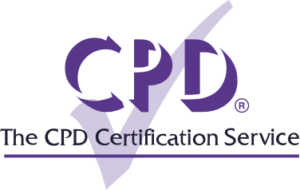In this Joiners CPD Guide
Why do Joiners need CPD?

A joiner is a skilled tradesperson who specialises in working with wood to create and install various structures, such as doors, windows, staircases and furniture. They may work on construction sites, in workshops, or on larger projects such as building extensions, and their work requires both technical skill and artistic flair. You will find some form of woodwork in all buildings in the UK, so the trade has an important part to play in the construction and furnishing sector. The Institute of Business reports that as of 2023 there are 27,494 registered joiner installation businesses in the UK, further highlighting the sector’s importance.
What our customers have to say
Dan King
Mobilisation, Training & Performance Manager

Sophie Aiken
HR Manager

Harriet Lee
Retail Recruitment Manager

What CPD courses do Joiners need?
Asbestos Awareness – in this course you will learn what asbestos is, why it was banned, and how it is dangerous to health, as well as the legislation surrounding the control of asbestos.
Health and Safety for Employees – anybody working with tools must have a clear understanding of health and safety. This course covers health and safety practices to ensure a safe and harmonious environment. It will also cover hazards and risks and how to minimise accidents from occurring.
Ladder Safety – this course will explore why ladders are dangerous and identify the hazards that are associated with their use. It includes risk assessment, emergency rescue plans, and legislation surrounding working at height.
Lone Working – joiners can often work alone so this course will consider safe working arrangements for lone workers. It will include emergency procedures, first aid, and reporting accidents and near misses.
Noise Awareness – this course will explain what noise awareness is and the consequence of being exposed to significant noise. Joiners use a range of tools and equipment which are often noisy and they work in noisy construction environments, so you will learn how to keep safe.
Personal Protective Equipment – this course will define PPE and the different types of PPE and associated regulations for different industries. You will learn what PPE is required for different work situations, and why the PPE is required. This course has been approved by ROSPA, meeting its standards and updates.
Working at Height – this course will cover the applicable legislation to working at height and the associated requirements. It will go into detail about what is classed as work at height and the industries most at risk from falls from height. Risk assessment and height equipment will also be covered.
Download our CPD trackerA guide to CPD for Joiners
Joiners typically need a combination of technical knowledge and practical skills in areas such as woodworking, carpentry and construction. They should have a good understanding of different types of wood, tools and equipment, as well as good communication and problem-solving skills to work effectively with clients and other tradespeople on a job site. It is also crucial for joiners to have good knowledge of building regulations and health and safety standards prior to commencing a piece of work to ensure that their work does not breach any rules and regulations. This knowledge can all be gained with CPD training.
As well as building regulations, joiners must abide by regulations set out by the Health and Safety Executive (HSE) to ensure a safe working environment for themselves and others. The HSE is a UK government agency responsible for regulating workplace health, safety and welfare in all workplaces. However, as the work of a joiner carries more risk of injury due to the tools used and working environment, adhering to the HSE is even more important. Additionally, they may need to adhere to the Royal Society for the Prevention of Accidents (ROSPA), which is a UK-based charity that promotes safety and accident prevention across various industries and activities, including joinery. At CPD Online College, our relevant courses meet the requirements for both the HSE and ROSPA.
CPD certificates
A great tip we tell our students is to make a CPD portfolio of everything related to your CPD. This can include the hours that you spend on each CPD training activity, the different types of activities that you complete, and the CPD courses that you complete along with the completion certificates. You will receive a CPD certificate when you successfully complete any of our courses. This will be available instantly for you to download straight to your computer. We advise that you save this in a secure folder on your computer, or even print off a hard copy to store in a folder. If you don’t have access to a printer, we can help you obtain a hard copy of your CPD certificate by printing this off for you and posting straight to your door.
Logging CPD hours
When you engage in a CPD training activity, there is a requirement to record the number of hours that you spend doing your training. To meet this requirement, you should keep a log of the number of hours you spend learning. This can be done very simply such as by keeping a diary of the date and time spent on an activity. Depending on your regulator or employer, you may have a target number of hours of CPD training to reach, so monitoring your hours as you go can be an easy way of meeting this.
Keeping CPD evidence
Embarking on one of our CPD Online College courses will form part of your CPD evidence. This includes the time you spend working through our course materials, as well as completing the course itself and obtaining a CPD certificate. Our online courses are easily accessible from any device with an internet connection. Once you have purchased your chosen CPD training course you can access it as many times as you like and refer back to it upon completion. You complete the course online with no time restrictions which makes our courses flexible to fit in with busy lifestyles. We also have a team of staff available to offer support, should you have any issues whilst completing your course (but we rarely get asked by any of our students). Our courses are self-sufficient because all the information is already included in the units of the course for you to work through at your leisure. You even have the option of using audio support to digest the course content; adapting to different learning styles.
It helps to create a CPD portfolio to help you keep track of the different CPD activities you complete each year. This can include the courses that you work through as well as other activities.
Some other CPD activities that can contribute to your training include:
























